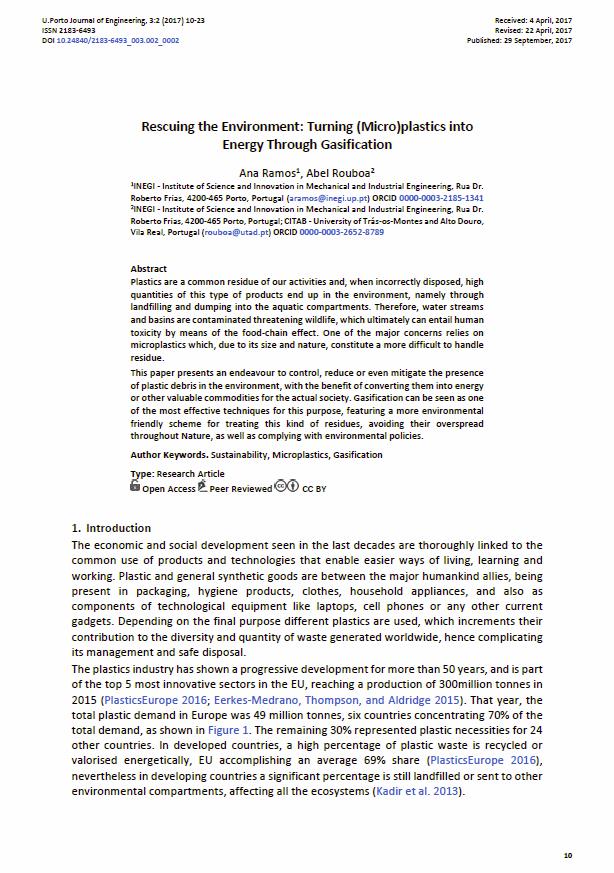Rescuing the Environment: Turning (Micro)plastics into Energy Through Gasification
Main Article Content
Abstract
Plastics are a common residue of our activities and, when incorrectly disposed, high quantities of this type of products end up in the environment, namely through landfilling and dumping into the aquatic compartments. Therefore, water streams and basins are contaminated threatening wildlife, which ultimately can entail human toxicity by means of the food-chain effect. One of the major concerns relies on microplastics which, due to its size and nature, constitute a more difficult to handle residue.
This paper presents an endeavour to control, reduce or even mitigate the presence of plastic debris in the environment, with the benefit of converting them into energy or other valuable commodities for the actual society. Gasification can be seen as one of the most effective techniques for this purpose, featuring a more environmental friendly scheme for treating this kind of residues, avoiding their overspread throughout Nature, as well as complying with environmental policies.
Downloads
Article Details
Authors who publish with this journal agree to the following terms:
- Authors retain copyright and grant the journal right of first publication with the work simultaneously licensed under a Creative Commons Attribution License that allows others to share the work with an acknowledgement of the work's authorship and initial publication in this journal.
- Authors grant the journal the rights to provide the article in all forms and media so the article can be used on the latest technology even after publication and ensure its long-term preservation.
- Authors are able to enter into separate, additional contractual arrangements for the non-exclusive distribution of the journal's published version of the work (e.g., post it to an institutional repository or publish it in a book), with an acknowledgement of its initial publication in this journal.
- Authors are permitted and encouraged to post their work online (e.g., in institutional repositories or on their website) prior to and during the submission process, as it can lead to productive exchanges, as well as earlier and greater citation of published work (See The Effect of Open Access).

